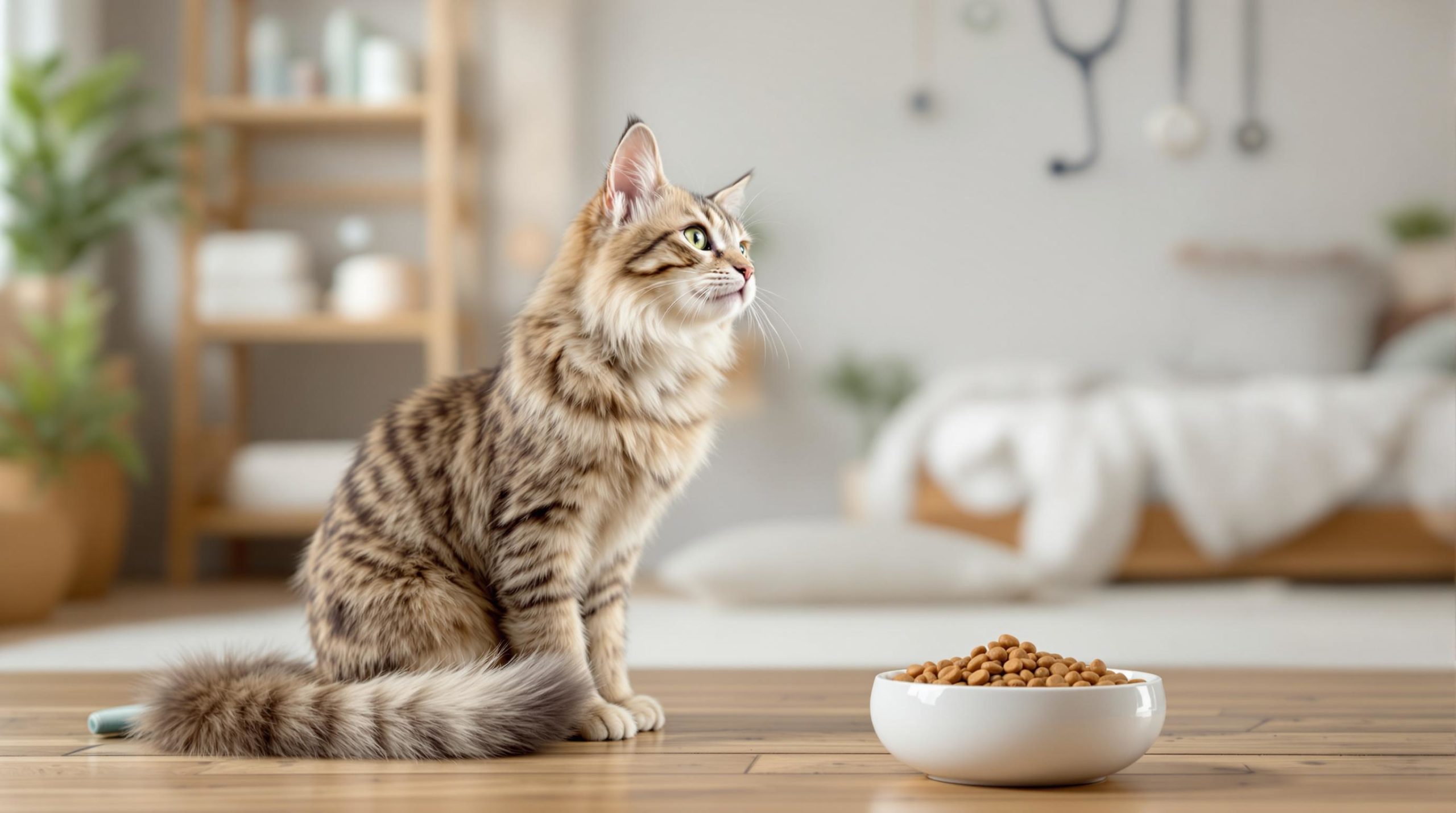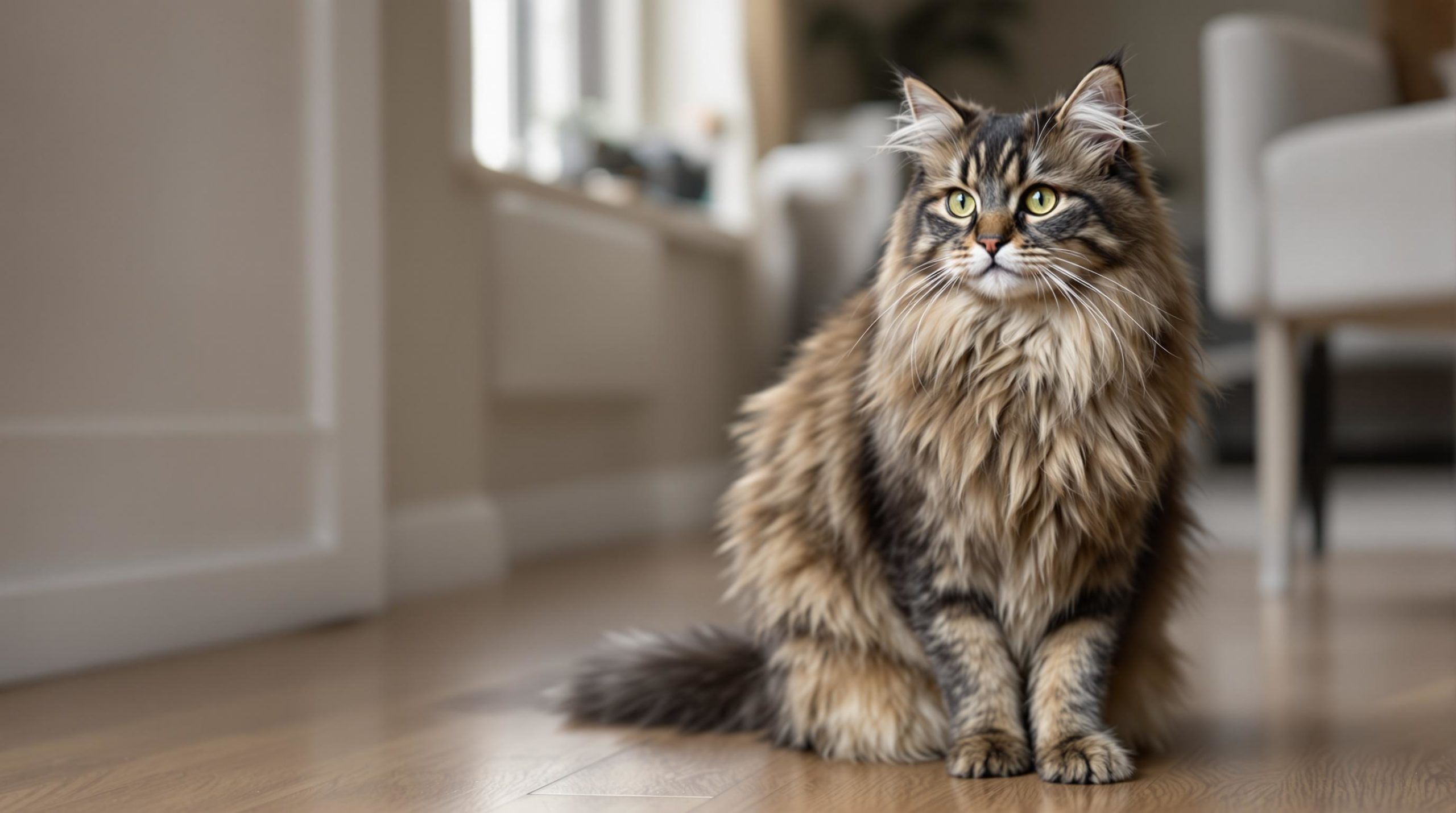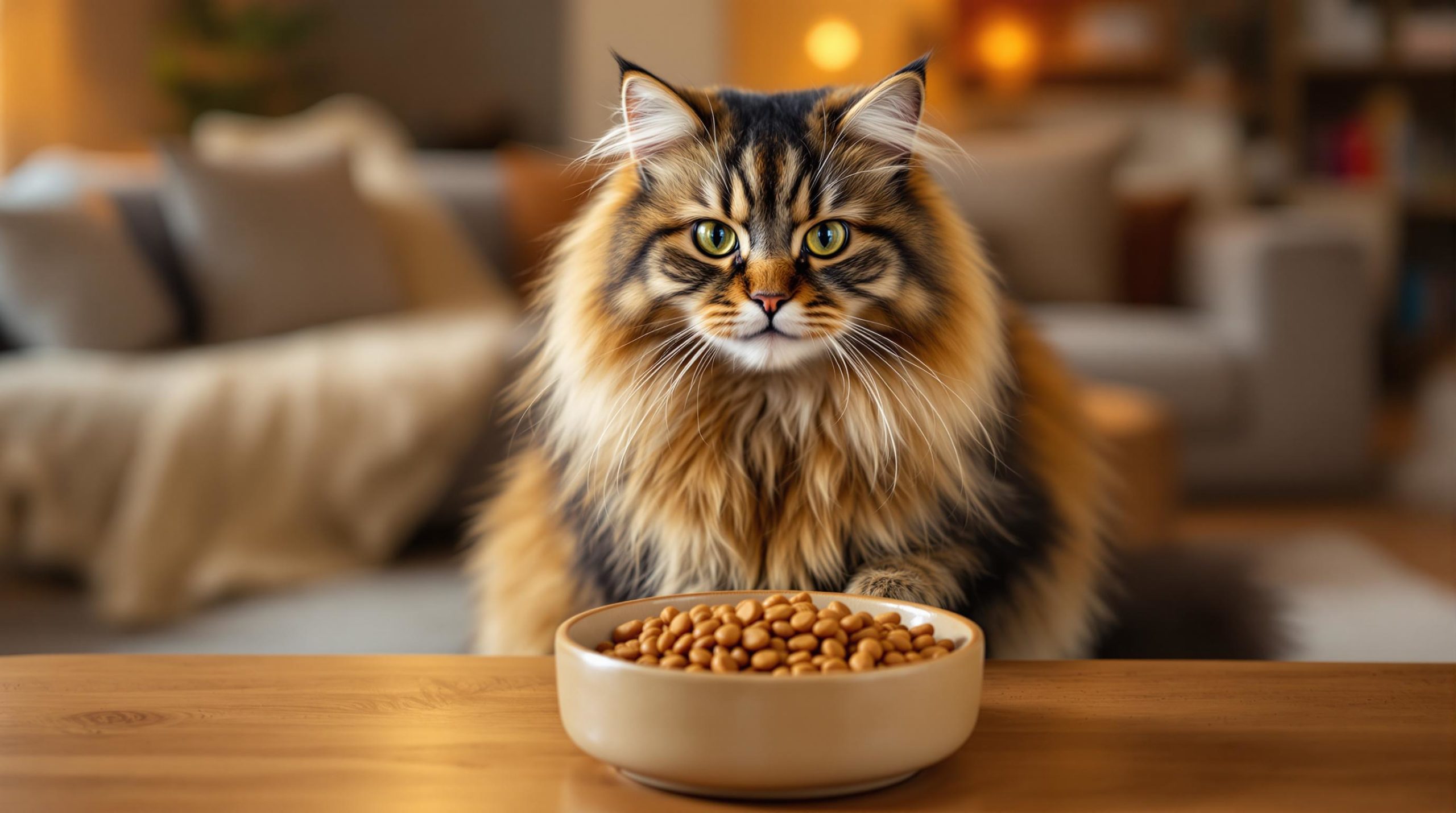Understanding the skinny Maine Coon: essential facts, potential risks, and effective treatment options

It’s a curious sight to see a Maine Coon, the giant of the feline world, unexpectedly lean instead of lushly bulky. Known for their majestic size and rugged fur, these gentle giants often symbolize feline health and vitality. But when the scale tips noticeably lower than their typical large frame, it raises a red flag. Unveiling the mystery behind a skinny Maine Coon is paramount for guardians eager to maintain their pet’s thriving health and exuberant lifestyle. The roots of this slender silhouette stretch from common nutritional oversights to stealthy medical issues—including some less obvious risks that require a watchful eye. Equipped with knowledge covering vital health markers, diet nuances, and veterinary interventions, cat lovers can confidently guide their Maine Coon back to the plump, robust figure that matches their regal heritage.
Recognizing the Skinny Maine Coon Phenomenon: Key Factors Affecting Cat Health
When a Maine Coon looks unexpectedly slim, deciphering the cause is essential because it whispers critical messages about the cat’s health. These cats are obligate carnivores with a natural demand for high animal-protein diets needed to fuel and maintain their muscular size. A failure to meet these nutritional requirements can swiftly transform their robust frame into a fragile skeletal silhouette.
Of course, every Maine Coon has individual variation, but clear signs of being underweight should never be ignored. Regular measurement can be tricky due to their thick coats, but feeling the ribs with light pressure should reveal a thin layer of fat; anything less might signal trouble. According to many Maine Coon enthusiasts, including experts at MaineCoonLife, healthy adult males typically range between 18 to 21 pounds (8.2 to 9.5 kg), with females around 12 to 15 pounds (5.4 to 6.8 kg). Deviations below these brackets coupled with poor coat quality and lethargy indicate potential health problems.
Top Contributing Factors to Skinny Maine Coons
- Inadequate Nutrition: Diets low in protein (
- Dental Discomfort: Oral health issues restrain eating, reducing caloric intake.
- Metabolic Disorders: Conditions like hyperthyroidism spike metabolism, causing weight loss despite hunger.
- Parasites: Intestinal worms may rob nutrients, leading to malnutrition.
- Stress and Anxiety: Environmental or social changes can deter appetite.
- Undetected chronic infections or cancers: These silently sap strength and weight.
Each cause demands different responses, which is why a thorough veterinary check covering blood panels, dental exams, parasite screenings, and dietary history is crucial. Proper diagnosis paves the way for targeted interventions that restore healthy weight and vigor. For further guidance on nutritional needs and veterinary standards, resources like MaineCoonLife’s senior care advice and insights on Maine Coon intelligence and behavior can be invaluable.

| Cause | Symptoms | Recommended Actions |
|---|---|---|
| Inadequate Nutrition | Weight loss, dull coat, lethargy | Switch to high-protein, high-fat diet, monitor intake |
| Dental Issues | Painful chewing, drooling, bad breath | Routine dental exams, professional cleaning |
| Hyperthyroidism | Excessive appetite, weight loss, increased activity | Veterinary diagnosis, thyroid medication |
| Parasites | Diarrhea, worms in stool, weight loss | Deworming treatments, fecal testing |
| Stress | Reduced appetite, withdrawal, grooming changes | Environment enrichment, reduce triggers |
| Cancers/Infections | Lethargy, vomiting, diarrhea | Comprehensive vet exam, early intervention |
Critical Medical Conditions Leading to Weight Loss in Maine Coons
Beyond diet and stress, several medical issues can stealthily provoke noticeable slimming in your Maine Coon. Understanding these scenarios can facilitate earlier diagnosis and effective treatment, which are lifesaving for your feline friend.
Hyperthyroidism and Its Impact
This common feline endocrine disorder accelerates metabolism abnormally. A Maine Coon with hyperthyroidism will experience rapid weight loss despite voracious eating. Increased thirst, restlessness, and an unkempt coat often accompany this condition. Veterinary blood testing confirms diagnosis and appropriate thyroid medications can successfully manage symptoms.
Diabetes Mellitus and Nutritional Imbalance
Maine Coons can develop diabetes, impeding glucose utilization. Cat owners may observe increased drinking and urination, coupled with unexpected weight loss. Adequate veterinary supervision encompassing insulin therapy and tailored pet nutrition plans can restore a healthy balance.
Cancer as a Hidden Threat
Weight loss linked to neoplasia, including lymphoma, leukemia, or intestinal tumors, requires urgent attention. Tumors can increase energy expenditure and inhibit appetite. Accompanied by symptoms like vomiting or swollen lymph nodes, vets employ bloodwork, imaging, and biopsies to identify the problem early. A swift intervention strategy, sometimes integrating surgery, chemotherapy, or palliative care, is indispensable for quality life continuation.
Chronic Infections Undermining Cat Health Essentials
Chronic viral infections such as FIV (Feline Immunodeficiency Virus) and FeLV (Feline Leukemia Virus) or persistent bacterial imbalances harm your Maine Coon’s nutrient absorption and immunity. These conditions manifest subtly but cause muscle wasting and reduced appetite over time. Incorporating routine vaccinations and veterinary services for monitoring health helps in prevention and management.
Behavioral Changes Triggered by Illness
Illness-induced appetite loss often stems from pain, nausea, or systemic malaise. Owners may notice behavioral shifts—decreased playfulness, increased hiding, or altered grooming habits. Recognizing these subtleties enables faster veterinary engagement. Sometimes, introducing dietary supplements supports recovery.
- Maintain regular vet check-ups, especially for aging Maine Coons.
- Combine physical with behavioral assessments to detect early disease signs.
- Invest in quality grooming supplies to observe coat condition trends.
| Medical Condition | Signs to Watch For | Treatment Approach |
|---|---|---|
| Hyperthyroidism | Weight loss, increased appetite, hyperactivity | Medications, regular blood tests |
| Diabetes Mellitus | Weight loss, increased thirst and urination | Insulin therapy, diet modification |
| Cancer | Rapid weight loss, vomiting, lethargy | Surgical, chemo, palliative care |
| Chronic Infections | Weight loss, poor coat, inflammation | Antibiotics, supportive care |
Effective Nutritional Strategies and Dietary Management for Skinny Maine Coons
A robust diet fuels the Maine Coon’s reputation as a muscular, lively breed. Once causes like illness are ruled out, focusing on nutritional optimization becomes a cornerstone.
The large frame of Maine Coons demands more calories than an average cat. Feeding a balanced diet rich in high-quality animal proteins and essential fats is critical to maintaining weight and muscle mass. Pet nutritionists and experienced breeders recommend meals comprising at least 30% protein and 20% fat content.
Optimizing Meal Plans
- Portion Control: Feed slightly larger portions approximately 3-4 times daily rather than single huge meals to promote consistent energy availability.
- Wet Food vs. Dry Food: Wet food often improves hydration and palatability, encouraging increased intake. However, combining wet with high-quality dry food provides balance and dental benefits.
- Specialized Diets: Prescription diets, such as those formulated for kidney health or metabolic support, may be necessary when tackling underlying conditions.
- Supplements: Omega-3 fatty acids, taurine, and other dietary supplements may boost overall health and coat condition.
For picky eaters or those experiencing dental pain, altering food texture to softer or pate varieties can increase acceptance. Additionally, consulting a veterinarian about tailored diet options is vital. Detailed guides on dietary needs can be found at sources like MaineCoonLife’s exercise and nutrition insights.

| Diet Component | Recommended Amount | Benefits |
|---|---|---|
| Protein | 30% or higher | Supports muscle mass and maintenance |
| Fat | 20% or higher | Energy dense, supports healthy skin and coat |
| Moisture | Added with wet food | Improves hydration and digestion |
| Supplements | As advised by vet | Enhances vitality and immune function |
Managing Stress and Environmental Factors Impacting Cat Wellness
Stress is an oft-underestimated contributor to feline weight loss. Maine Coons are known for their sociable and intelligent nature but are sensitive to change. A new pet in the house, altered family routines, or even inconsistent behavioral training profiles may suppress their appetite.
Managing stress optimizes feline wellness by stabilizing eating behaviors and improving overall mood. Key environmental strategies include:
- Routine: Maintaining consistent feeding, playtime, and rest schedule.
- Safe Spaces: Providing quiet retreats and vertical climbing spaces to reduce tension.
- Cat Enrichment Products: Toys, scratching posts, and interactive feeders to stimulate their physical and mental health.
- Socialization: Gradually introducing new animals or visitors to minimize anxiety.
- Monitoring behavior changes: Quickly addressing any reluctance to eat or hideaways.
Combining these behavioral strategies with nutritional support helps break the cycle of stress-induced weight loss. Detailed considerations on lifestyle care can be found at resources like MaineCoonLife’s grooming and care guidance and how to keep Maine Coons comfortable year-round.
| Stress Factor | Effect on Maine Coon | Mitigation Strategy |
|---|---|---|
| New Pets or People | Reduced appetite, hiding | Slow introductions, positive reinforcement |
| Routine Changes | Behavioral stress, weight loss | Consistent schedules, gradual adjustments |
| Environmental Noise | Startle response, withdrawn behavior | Quiet zones, secure safe spaces |
| Insufficient Enrichment | Boredom, excessive grooming | Interactive toys, climbing structures |
Essentials of Veterinary Care, Diagnosis, and Treatment Options for Weight Loss in Maine Coons
Proactive veterinary involvement is vital for unraveling the causes of a Maine Coon’s slim physique and providing effective treatment. Diagnostics include:
- Comprehensive physical examinations: Assess body condition, dental health, and coat status.
- Blood work: To detect thyroid abnormalities, diabetes, infections, or cancer indicators.
- Fecal exams: Essential to identify intestinal parasites.
- Imaging: X-rays or ultrasounds for internal abnormalities.
- Behavioral assessments: Understanding stress or anxiety contribution.
Following diagnosis, veterinarians tailor treatment plans involving medication, dietary adjustments, or advanced therapies. Pet Insurance can alleviate financial burdens associated with extensive veterinary care services and hospital stays. Collaboration between owners, vets, and specialists is the optimal route for restoring vitality.
For Maine Coon owners interested in detailed care approaches and recommended veterinary standards, visiting sites such as MaineCoonLife’s breeding age and health recommendations offers valuable insight. Moreover, integrating grooming supplies and regular wellness checks into daily routines supports ongoing health preservation.
| Diagnostic Tool | Purpose | Treatment Implications |
|---|---|---|
| Physical Exam | Evaluate condition, dental health | Dental treatments, weight monitoring |
| Blood Tests | Detect metabolic and infectious diseases | Medication, dietary changes |
| Fecal Tests | Identify parasites | Deworming, treatment plans |
| Imaging (X-ray, Ultrasound) | Detect tumors, organ irregularities | Surgical or medical intervention |
Frequently Asked Questions about Skinny Maine Coons and Their Well-being
- Q: How do I know if my Maine Coon is truly underweight?
A: Monitor body condition scores by feeling the ribs and spine; light coverage of fat is ideal. If bones are easily visible and the coat looks dull, consult a vet. - Q: Can a skinny Maine Coon still be healthy?
A: Some cats are naturally lean, but persistent thinness often signals health problems requiring veterinary attention. - Q: Should I change my cat’s diet if it’s losing weight?
A: Adjust diet only after vet consultation to address underlying causes and choose proper nutrition tailored to your cat’s needs. - Q: How important is stress in affecting Maine Coon weight?
A: Very important—stress can severely reduce appetite and cause weight loss, so addressing it is part of holistic care. - Q: Is regular veterinary screening necessary for a Maine Coon’s long life?
A: Absolutely. Routine check-ups help catch diseases early and ensure ongoing feline wellness and vibrant energy.